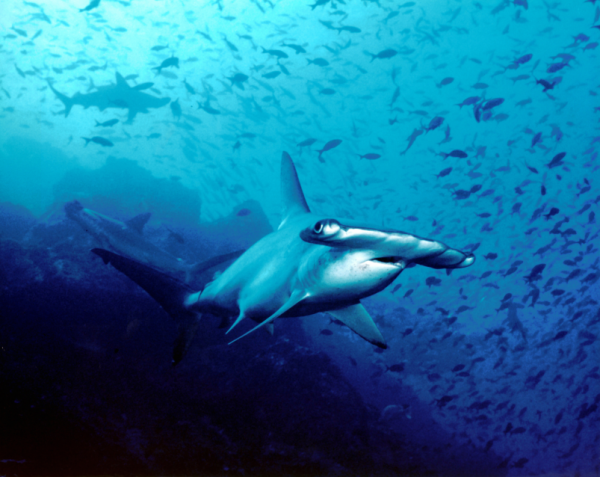
Hammerhead sharks are one of the many animals included in the list of endangered species. These predators are being hunted because of their fins while others are for recreational or sports fishing.
The worldwide population of hammerhead sharks has been reduced by almost less than 80 percent over the past 25 years. Since 2007, the cartilaginous fish is listed as an endangered species by the International Union for the Conservation of Nature (IUCN). It has been counted as well in CITES Appendix II, which controls the global trade of threatened species.
Science Daily reported that even with the acknowledgment of its endangered condition, direct defense and management has so far been restricted by a deficiency in information regarding the hammerhead shark's behavior. The Frontiers in Marine Science publicized some new findings that provided optimistic insights.
The research distinguished the hammerhead shark's exploitation of specific locations. This gave both the conservation authorities and marine management to regulate the fish's interaction with humans, its worst threat.
The Bimini Biological Research Station in Bahamas biologist Dr. Tristan Guttridge who was in charge of the study said, "Knowing when the animals are likely to be in certain places will be critical in developing effective management strategies. The aim would be to reduce harmful interactions with the sharks."
Southern Shark Ecology Group in Flinders University, Australia, Dr. Charlie Huveneers agreed. He said that the gathered fresh details regarding the hammerhead sharks' movements will aid in assuring supportable catches and enhance global regulation as well as management.
Meanwhile, in Florida, thousands of black tip sharks swarmed the warmer waters as the cold climate started to visit the north. Professor of biological sciences at Florida Atlantic University, Stephen Kajiura along with his students took photographs of the migrating sharks from high above West Palm Beach, The Tampa Bay Times has learned.
Dr. Kajiura said that the mass migration of the blacktip sharks could be due to the change in global climate where these fishes prefer warmer waters than cold ones. It favor temperate waters ranging 21 to 25 degrees Celsius.



